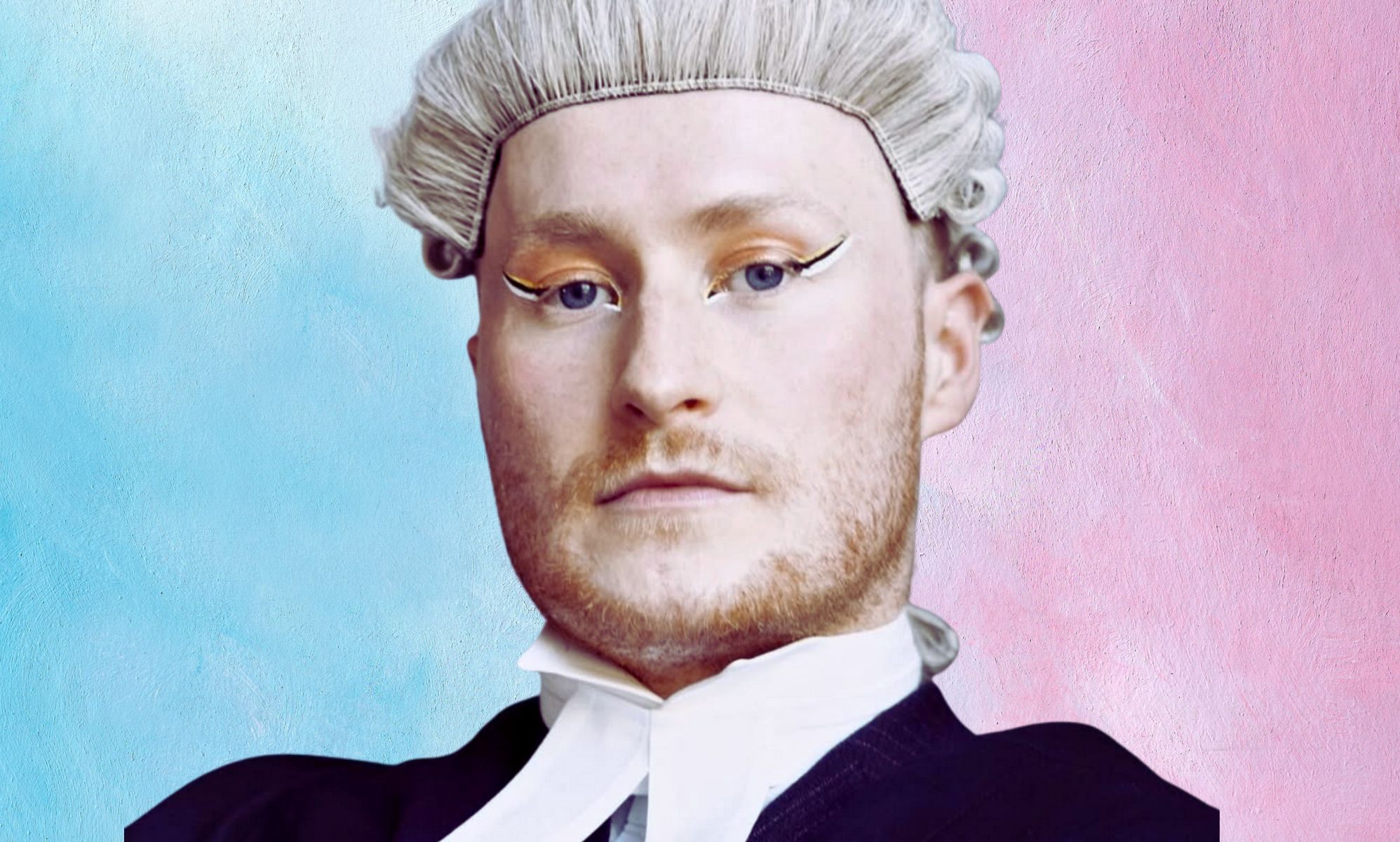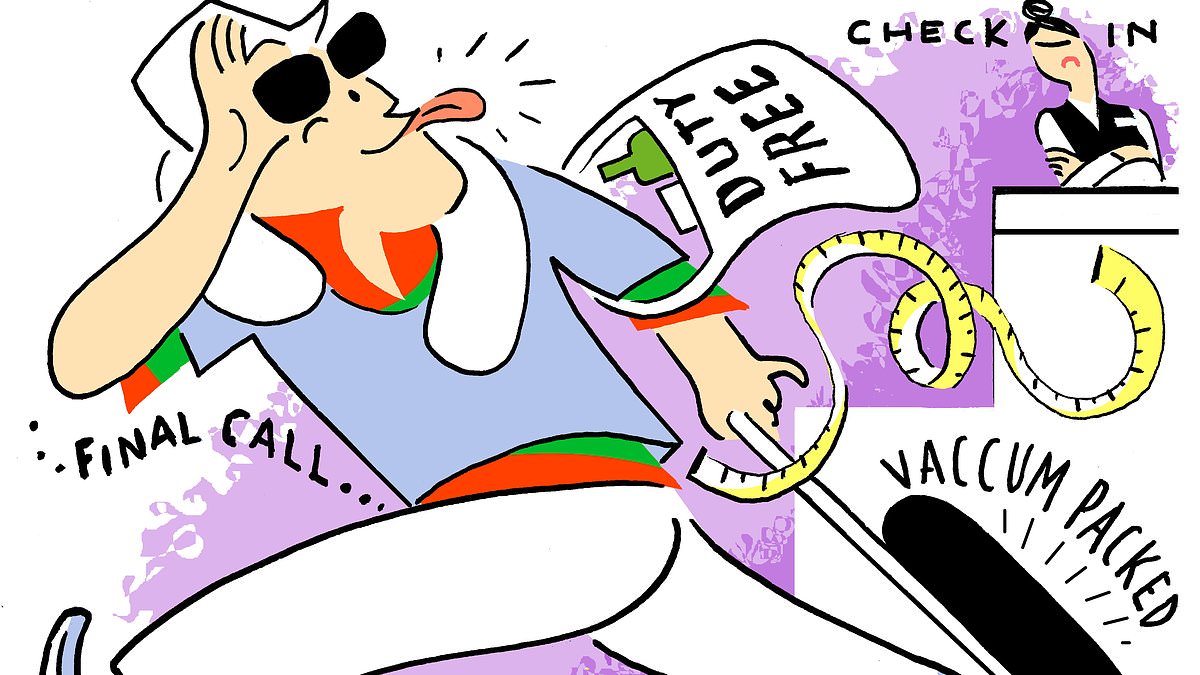By Amelia Hansford
Copyright thepinknews

The UK’s first out non-binary barrister says the Supreme Court ruling on single-sex spaces is being misinterpreted in a way that excludes trans people.
Garden Court Chambers barrister and influencer Oscar Davies tells PinkNews that the court’s ruling on FWS v Scottish Ministers does not necessarily exclude trans people from single-sex facilities.
The ruling, delivered in April, deemed that the 2010 Equality Act’s definition of sex referred to “biological sex” and its definition of a woman related to a “biological woman.”
In his ruling opinion, Lord Justice Patrick Hodge urged caution in reading the judgement as “a triumph of one or more groups in our society at the expense of another,” while emphasising that trans people still have protection under the law.
Despite this, the Equality and Human Rights Commission (EHRC), which regulates equality law in the UK, has issued updates to its code of practice on single-sex service provisions to the UK government. The updates are expected to exclude trans people from gendered facilities consistent with their gender identity.
However, Davies tells PinkNews that the EHRC and other organisations may have misconstrued what the Supreme Court ruling actually said, while further arguing that it does not give groups a right to “discriminate” against trans people.
“A general rule [of equality law] is that you must not discriminate against someone,” they said. “Say if we’re talking about service provision in gyms, under Section 29 [of the 2010 Equality Act], you must not discriminate against anyone and that applies for services.
“You then have what’s called the carve-out, or an exception, to the rule, which in this case is single-sex spaces, which is Schedule 3 of the Equality Act. That says in some circumstances, having a separate or single-sex space can be justified.
“Now, the Supreme Court has said, ‘OK, well, a single-sex space means a space for biological sex,’ but the point here is that these provisions are permissive rather than exclusionary. This is where everyone keeps getting it wrong.”
Equality Act should be a ‘shield rather than a sword’, non-binary barrister says
Davies argues that because the 2010 Equality Act and related laws are meant to protect rather than exclude, the idea that they can be used to bar trans people from single-sex spaces is wrong.
“If you have a single-sex space, my interpretation is that a trans person can still go into that single-sex space, but if someone complains, they can bring out a sex discrimination claim or the organisation can exclude that person, but that doesn’t happen automatically, right?” Davies adds. “The Equality Act is meant to be a shield rather than a sword. It’s not meant to attack people and get rid of their rights.
“Even if you do have a single-sex space, the exclusion must be proportionate, which means that the rights of whoever wants to be in a single-sex space, if they’re complaining, have to be counterbalanced against the rights of a trans person. Those rights still exist. The law hasn’t changed on that.”
An array of human rights and LGBTQ+ groups have criticised the EHRC’s suggested updates to its code of practice, as well as its “rushed” public consultation, which gave the UK public just six weeks to consult on the updates.
Government urged to hold debate for EHRC code
A finalised version of the code was shared with equalities minister Bridget Phillipson, who is now set to scrutinise the changes and approve them to become statutory, or legally binding, without a parliamentary debate. The final draft will likely not be made public until it becomes law.
Davies says that EHRC codes are typically scrutinised without a public debate because, historically, they haven’t been “contentious.”
“They haven’t really had to require much debate or scrutiny,” they say. “However, whenever something highly political is going to affect the rights of tons of people, there should always be a democratic debate. There should always be transparency and public accountability.
“[EHRC chair] Baroness Kishwer Falkner’s term is ending soon, and so she’s just going to leave and has made this law, and there’s no accountability. It’s not really fair to anyone.”
They add that the EHRC’s continued anti-trans policies seem contradictory to its supposed mission statement, stating: “The mission statement says ‘Our role is to make the country a fairer place by enforcing and upholding the laws that safeguard everyone’s right to fairness, dignity and respect.’ But they seem to be doing quite the opposite for trans, non-binary and intersex people.”
Several Human rights groups urged the UK public to voice their concerns over the code before it’s made statutory by contacting their MPs.
TransActual director, Keyene Walker, told PinkNews earlier this month that such a “major change” to UK law should not be approved without further parliamentary and public scrutiny.
The LGBTQ+ rights organisation produced an email template for those who wish to voice their concerns but are unsure where to start. You can find your local MP by typing your postcode here.
Supreme Court failing to consider non-binary people ‘demeaning’, barrister says
Davies further criticises the Supreme Court’s lack of consideration for non-binary or intersex people, saying it’s “demeaning as a lawyer to not be recognised by the law that I use in my everyday life.”
“It says biological sex means this or that, but then it also says generally sex and gender in the law are interchanged, with no further explanation, nor does it mention being non-binary is a thing that can be legally recognised,” they continue. “The ruling does not even mention being intersex, which is completely omitted.”
They say the lack of recognition of intersex people was especially strange, given that they are mentioned in the 2002 Goodwin v UK judgement, which urged the UK to legally recognise trans people.
All of this, they say, means that the ruling is unclear on how non-binary or intersex people fit into future legislation.
“If I’m discriminated against because I’m non-binary, someone takes issue with me being non-binary, and they do this or that because I’m non-binary, would I be able to sue them for discrimination? Potentially not. It’s not super clear.”
The best thing people can do to fight impending laws that could come from the EHRC code, Davies says, is to use their voices.
“If everyone spoke up more, then the people who put their heads above the parapet wouldn’t have so much responsibility. It’d be much easier if there were more people willing to raise their voices, and I’m not just talking about trans people; I’m talking about allies.
“I believe that trans people deserve to be treated with dignity and respect. Is that really such a controversial opinion? The idea that trans people are trying to access women’s spaces to endanger women is ludicrous.”



